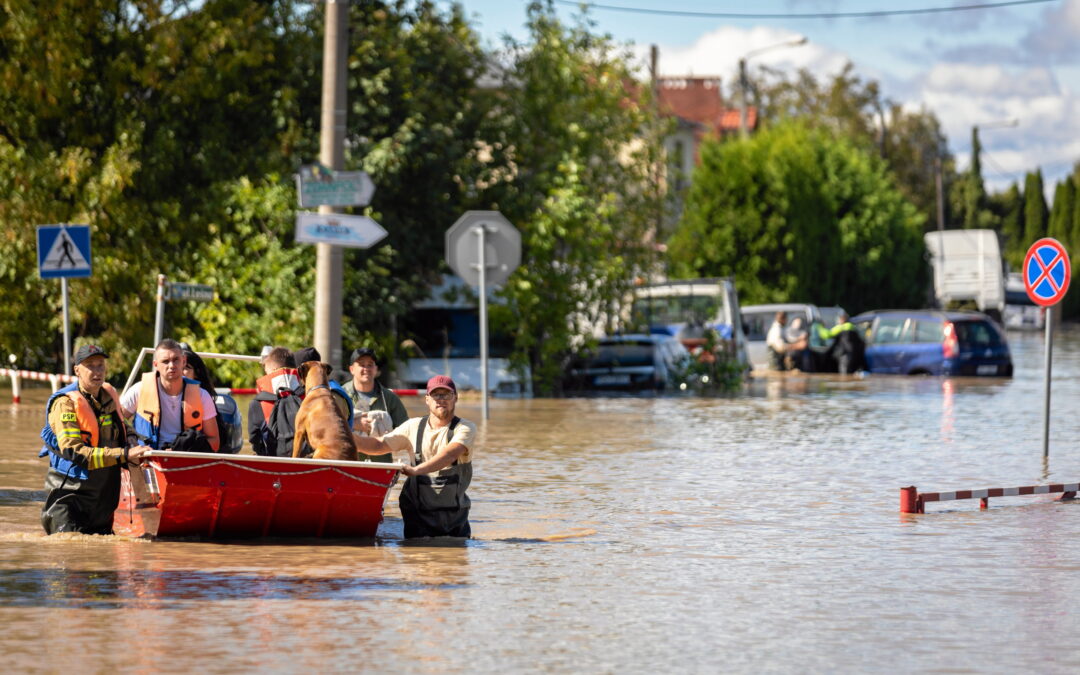The Polish government has announced that it will declare a state of emergency in response to major flooding that continues to devastate parts of southern Poland. Warsaw has also appealed to the European Union for help in dealing with the disaster.
Torrential rain in recent days has seen the southwest of the country, in particular, hit by floods, with at least two deaths reported so far.
Among the worst-hit places has been the city of Nysa, near the border with the Czech Republic. On Sunday, its main hospital was flooded, forcing some patients to be evacuated on boats.
Szpital w Nysie😵💫
Źródło @Nysa Hot pic.twitter.com/fvjMow6nDy— Kamil NH (@KamilNH84) September 15, 2024
On Sunday evening, Prime Minister Donald Tusk announced that, after holding consultations with the relevant ministries and rescue services, he has ordered preparations to begin for the introduction of a so-called state of natural disaster.
That legal measure has never before been implemented in Poland’s history. It effectively puts all crisis management into the hands of the central government and grants the authorities powers such as ordering businesses how to conduct their activity, commandeering private property, and restricting freedom of movement.
“Declaring a state of natural disaster will help to launch additional resources and instruments at the national level,” climate minister Paulina Hennig-Kloska told broadcaster Polsat on Monday morning. “This will help to increase and speed up aid for people affected by the flood.”
Kłodzko. Poziom wody sięga już czubka latarni ulicznej. #powodź2024 #Powodź #dolnośląskie #DolnyŚlask #Kłodzko pic.twitter.com/jUbbMaZX25
— Jakub Rosiński (@Jakub__Rosinski) September 15, 2024
Tusk has ordered the finance ministry to prepare funds for emergency aid for victims and announced that his minister for EU affairs will apply for European aid.
The head of President Andrzej Duda’s National Security Bureau (BBN), Jacek Siewiera, declared that “it is time for Brussels to show its solidarity, as we have done many times in floods, fires and disasters in the EU”.
Tusk and defence minister Władysław Kosiniak-Kamysz on Sunday publicly thanked neighbouring Ukraine and the Czech Republic for offering to send rescue crews and equipment to Poland.
The government was due to begin an emergency meeting at 9 a.m. local time on Monday to discuss the response to the floods.
Sorry to interrupt your reading. The article continues below.

Notes from Poland is run by a small editorial team and published by an independent, non-profit foundation that is funded through donations from our readers. We cannot do what we do without your support.
Speaking to broadcaster TVN on Monday morning, infrastructure minister Dariusz Klimczak said that he had so far received information of two fatalities linked to the floods. According to news website OKO.press, three deaths have been reported, in the towns of Lądek Zdrój, Bielsko-Biała and Krosnowice.
Meanwhile, the mayor of Wrocław, Poland’s third-largest city, has announced a flood alert and warned residents to be prepared for “the worst-case scenario”. Jacek Sutryk noted that more water than previously predicted was set to flow through the Oder River in the coming days.
However, the mayor also reassured residents that a repeat of the infamous 1997 floods that devastated the city is unlikely as “the water system has been comprehensively modernised and can handle one third more water than in 1997”.
A spokesman for the state Institute of Meteorology and Water Management (IMGW), Grzegorz Walijewski, told news website Onet that the peak of the flooding has still not occurred.
Main image credit: Grzegorz Celejewski / Agencja Wyborcza.pl

Daniel Tilles is editor-in-chief of Notes from Poland. He has written on Polish affairs for a wide range of publications, including Foreign Policy, POLITICO Europe, EUobserver and Dziennik Gazeta Prawna.



















